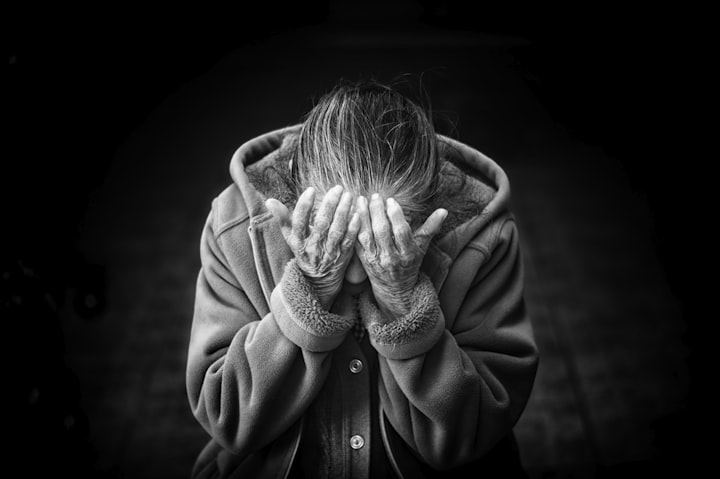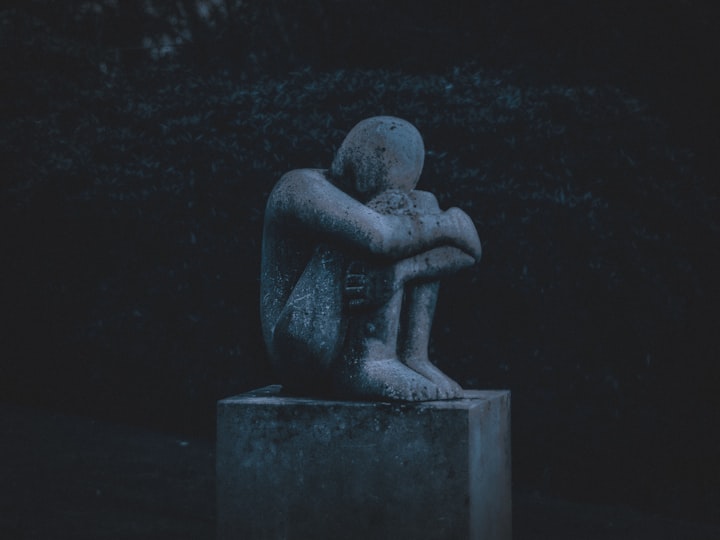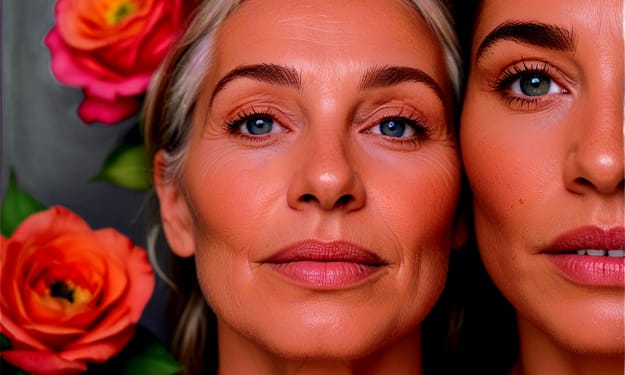The Daughter of an Alcoholic
The Identity I Tried to Hide

This topic is awkward and painful. There’s hundreds of books written on the subject my experts with advanced degrees. I’m not one of those people.
I’m just a person. I’m just a daughter who lived in an alcoholic home for 19 years. There’s something to say for experience.
When you grow up as the child of an alcoholic, you get branded as an Adult Child of an Alcoholic™️ (ACoA) for the rest of your life.
Basically, this means that we, as kids, missed out on some pretty vital and foundational experiences and learning growing up. Not to mention the things we did experience but shouldn’t have.
This can make it pretty hard to do a lot of things. If you attend Al-Anon meetings or read any ACoA books, they will jump into detail about all the ways your parents’ dysfunction impacted you. Some of it you may not know, but some of it you do, you just didn’t know where those traits (or flaws as we see them) come from.
In my case, it was pretty simple. I am the daughter of an alcoholic father. If you’ve read my past articles, you’ll know that I’m currently “no contact” with my father because of his abuse. But in that post I didn’t really mention the alcohol.
Why? Well, for me, it was always the norm. As far back as my memory goes, my father was an alcoholic. It just seemed normal to me. I couldn’t imagine things any other way.
It fit so casually in our family. Dad didn’t drive home a lot because he drank so much. Dad wouldn’t get home until 7–8 because he was at the bar. Don’t text or call or start a conversation with him after 3pm because he was already plastered.
Unfortunately, my dad’s alcoholism was dominated by 2 themes: well-hidden and aggressively angry.
Like with the abuse, we hid my father’s alcoholism from the world. To him, it was a part of doing business. Men went to bars, hit on waitresses, and made plans. It was his job. It was also where he found relief from his own childhood trauma and the guilt he held towards us.
Essentially, my dad appeared like a social drinker. To many, he was charismatic and fun. He would drink with the best of them. Only our immediate family knew the depth of the damage.
Just like with the abuse, we kept it hidden. For the most part, we were ashamed and embarrassed. I didn’t want my friends to meet him as he slurs his words and stumbles across the room. As fundamental, born-again Christians, we didn’t want his behavior to be known — to represent us. It was humiliating.
But, he held down a job, supported our family — all of these things made him appear a perfectly normal father to the outside world. So for decades, that’s what they saw. Who were we to challenge it? Not only did we feel helpless, but it was embarrassing to have your father as a well-known drunk.
We knew we weren’t allowed to share the secret, but we also didn’t want to.
That’s just one of the things that made it so hard. Not to mention the fact that it made him brutally angry and violently mean.
He would slam doors, start arguments, throw things at the wall. I even remember him getting us banned from a pizza chain because of it.
It was often when my father was under the influence that his cruelty came out. Abuse and alcoholism often go hand in hand. Mine certainly did.
This was when he would pick out insecurities and make cruel jokes about them. He would challenge and belittle us. He would scare us — and take delight in it.
My family spent years walking on eggshells.
But that was just life. We couldn’t do anything differently as children. We were helpless teenagers. Any attempts to challenge him were met with verbal, emotional, mental, and even financial abuse.
We were helpless.
So, when my mother finally decided to leave him, it felt like escaping out from underneath a giant’s thumb. We could breathe. We could relax.
Our family got to know each other again. Secrets that were locked up by fear spilled out of us. Our abuse was made known to each other, and to others.
We were finally able to be honest — with ourselves and every one else — about the alcoholism and abuse.
But that didn’t fix me.
And that was one of the most difficult realizations to have. Dad was out of the picture; we didn’t have to endure the abuse and drinking; so what was wrong?
Well, it turns out being an ACoA has lifelong implications. It impacts your self-esteem, your ability to trust, to have intimate relationships, etc.
Because we didn’t see that modeled for us in childhood — and because our feelings were shoved aside for his — we had all of these hidden issues that came out of the woodworks.
It was like opening Pandora’s box. Once it was open, we couldn’t undo it. We couldn’t put those feelings, the fear, or the damage back inside.
So, in the years I have been “no contact” with my father, I have had to deal with the fallout. I’ve dealt with the repercussions and impact of his dysfunction. There’s a lot more to be an ACoA than I thought.
I never wanted to be known as the daughter of an alcoholic.
It was humiliating, but it was also limiting. I didn’t want anyone’s pity. I didn’t want to be defined by my father.
So, for a long time, I resisted it . But in reality, I was resisting the truth. By not acknowledging that this was a part of my upbringing — a part of my abuse and damage — I was doing myself no favors. I was withholding healing.
I couldn’t be honest with myself until I could be honest about my circumstances.
Owning my truth — and this aspect of my identity (note: aspect, NOT sum total) — allowed me freedom.
By being honest, I was placing my father’s faults exactly where they should be: squarely at his feet.
But to a greater (and surprising) extent, it also allowed me to get to know myself better. To know why I have certain insecurities and difficulties.
It helped me to realize that these issues I was fighting weren’t just personal flaws. It wasn’t because I was a terrible person who deserved to suffer. It wasn’t because I was weak.
These battles I was facing were due to being an ACoA. There was a direct correlation. To me, that brought freedom. These struggles were not because of me or any moral failing.
In realizing that, I’ve been able to give myself more grace, more compassion, more love.
I’ve been equipped with the truth and knowledge — two vital things when overcoming generational issues.
The very thing I was running from was the same thing that let me honestly and accurately see reality for what it was.
And the truth? Those things weren’t my fault. They weren’t my responsibility. They aren’t my shame or guilt.
And so many of my struggles are now easier to understand when I embrace the fact that I was raised in a dysfunctional household.
It’s been like the key to unlock the truth about my own life and heart.
My friend, if you’re reading this, you either are the child of an alcoholic or close to someone who is. I encourage you to dig deeper into this truth. To stop running from things that aren’t your fault. To stop accepting blame when it doesn’t belong to you.
Once we realize the truth about our lives, we can begin the healing process. It’s scary — and it definitely looks different for everyone.
But going through the process for yourself will help open up a world of healing.
About the Creator
Ashley Tripp
I’m a freelance writer & artist. I create pieces about the things that move me with the hopes that they move my readers too. My work has been featured in multiple publications. Check out my website for more at https://msha.ke/ashleytripp






Comments
There are no comments for this story
Be the first to respond and start the conversation.